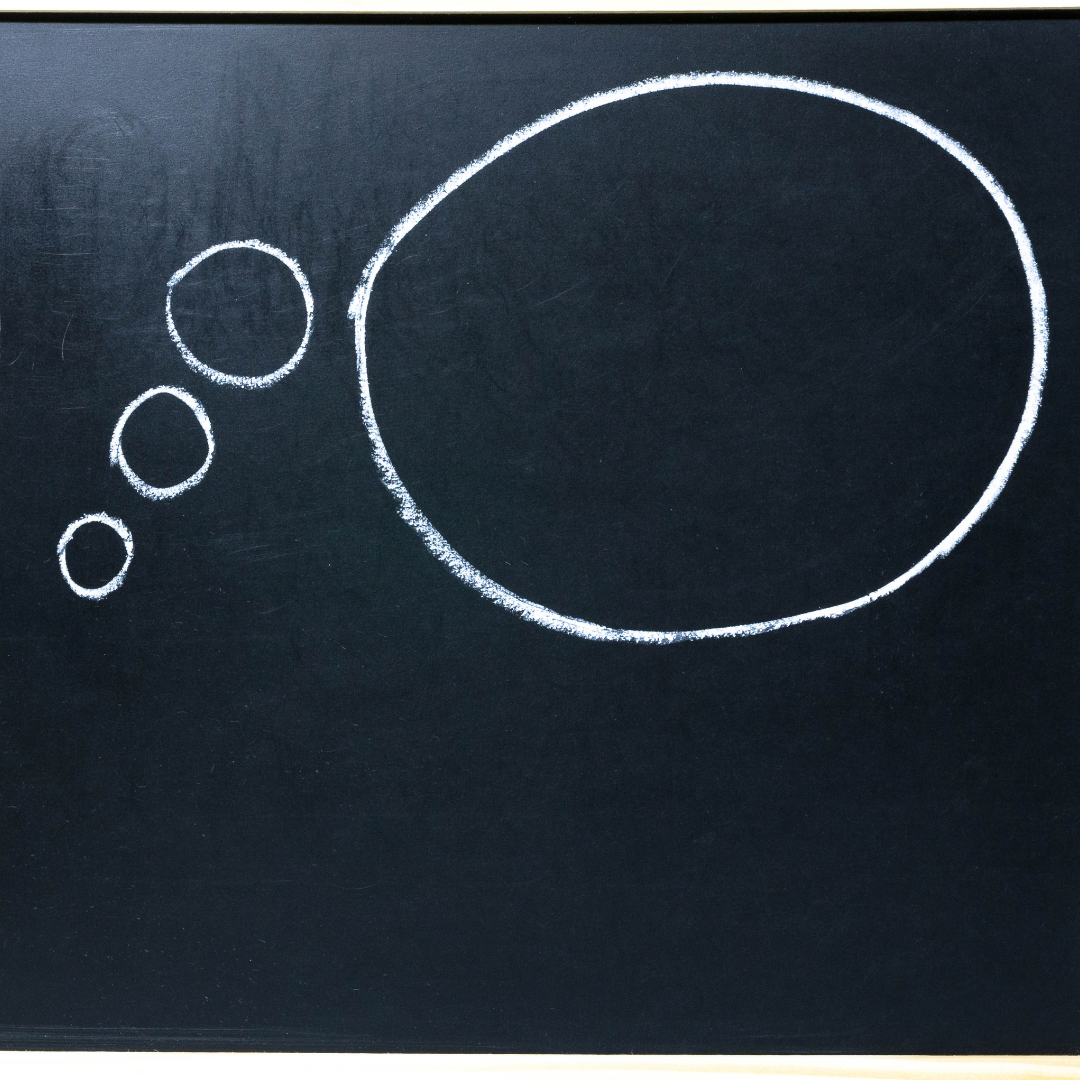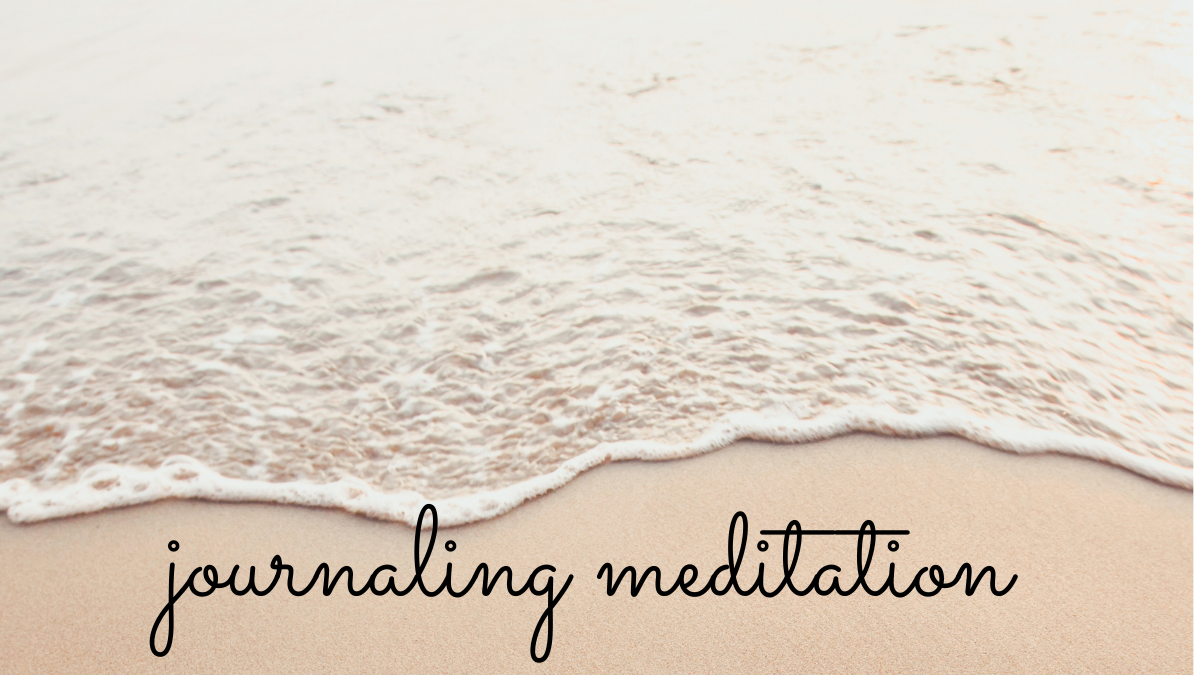Journaling is a genius way to focus on a single idea for a dedicated period of time or space. In this way, it is not so different from meditation. If you take your journaling seriously, as many high-performing leaders do, you’re focused on that activity to the exclusion of all else. If you treat journaling as a discipline, you will create structures and rituals around it. For instance, you will write in a certain place, at a certain time, about particular topics or goal-related concepts. You will be accountable to the practice. When you do something repetitively with focus and intention and elevate that practice to “non-negotiable” it becomes deeply intentional. Sounds a lot like meditation, doesn’t it?

Many meditation practices amplify the use of a mantra to keep your mind occupied with a central focus. Your mantra is a tool – a word or phrase — that is used to return to the focus of the meditation if your mind drifts and you find yourself suddenly down a rabbit hole. The point of meditation is to maintain a nonlocalized focus, and return to it as often as needed.
Focused Expectancy Produces Results
When you journal with attention, intention, and focus, alchemy happens. When you write with focus, a sense of expectancy rises and attaches itself to the words that fill the page. With a heightened sense of anticipation, the possibility of a more meaningful dialogue with the great mystery occurs. And when the intention is to elevate potential, to achieve a higher level of life mastery, or to evolve into mastery, expectancy allows for a more reliable outcome. This is self-fulfilling prophecy at work.
Journaling with deep intention can also have the effect of moving the writer toward a mental state slightly out of synch with the rest of the world. I’ve experienced journaling sessions so focused and intense that I’ve been completely unaware of someone talking to me, the phone ringing, time passing. From such an altered state, journaling assumes a heightened sense of clarity. Ideas flow, information appears, answers emerge.

Meditative journaling is much like embarking on a hero’s journey. You’re called to a quest with a single torch (idea) to light the way. Like a hero’s adventure you will seek signs and markers along the path. You will gather pieces of information, random pieces of wisdom without context, yet somehow compelling. The journey requires trust and a willingness to suspend judgment about what shows up. A rational mind carries no currency here. Leaving doubt at the door and adopting an attitude of willingness to suspend disbelief, you follow the signs and markers along the way until at last, with a full purse and a still mind, you retrace your steps and return to the daily world with its clocks and logics and boundaries. If you allow the unexpected to fill your journal in this way you may access a higher level of knowing than you might have if you’d started based an idea of what you knew “for sure.”
It turns out that tuning in to a meditative state of journaling may have unexpected results. When you write with intention you may be compelled to speak your truth more often. If you become accustomed to blurting the obvious onto the page – whether or not you can defend it, deep truths may spill over into conversations with colleagues and friends. You may develop the courage to pursue passions you retired or suppressed years ago and which may now come roaring back and demand to be expressed. You may come to trust the process that requires you leave behind what you know, in pursuit of what you don’t…and in so doing unlock vaults vast and overflowing with fecund and aberrant constructs.
Start with An Empty Cup
Another way to approach meditative journaling is to enter with a question or seeking a solution. This is fine and good, and often necessary in order to train your active mind to focus on a single defined point. If your mind (or journal) wanders, simply return to the original idea. The trick is to both know your question and release any attachment to the answers that may follow no matter what form they take. Our subconscious mind speaks in symbols, pictures, archetypes. Be willing to accept what information presents itself beyond language and do your best to interpret what shows up. Enter the process with an empty cup and return with one overflowing with wisdom beyond words.

In case you’re wondering, there is no right way or wrong way to approach journaling meditation, so don’t worry. Worry will only distract you.
Finally, as with any ritual, I recommend completing your journaling meditation with a moment of reflection, of quiet, and maybe a small acknowledgement of gratitude. The muse adores a sacred space and will return where she knows she is welcome. You got this! Journal on.
Cynthia Gregory is an award-winning writer and author of Journaling as Sacred Practice, and What is Possible From Here. To work with Cynthia in a small-group Blogging Workshop, register here.


